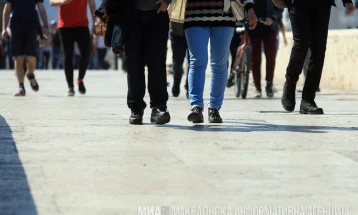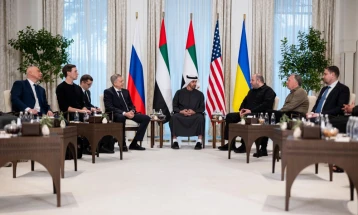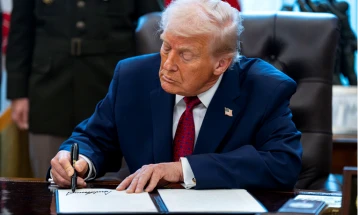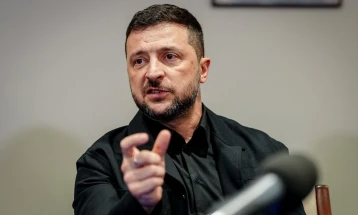Erdoğan at risk of losing power as Turkey votes in crucial elections
- Polling stations were open on Sunday across Turkey for crucial parliamentary and presidential elections that will decide the future direction of the nation that straddles Europe and Asia.
- Post By Magdalena Reed
- 12:15, 14 May, 2023
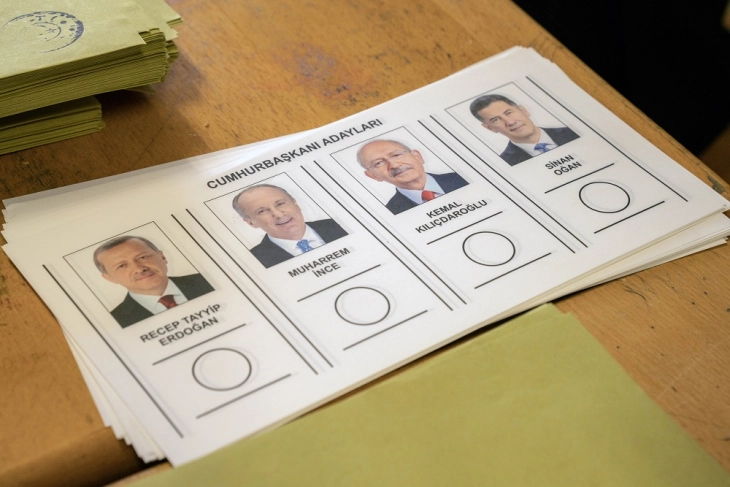
Istanbul, 14 May 2023 (dpa/MIA) — Polling stations were open on Sunday across Turkey for crucial parliamentary and presidential elections that will decide the future direction of the nation that straddles Europe and Asia.
Roughly 61 million people are eligible to vote, including nearly 5 million first-time voters. Turks abroad have already voted.
The vote, considered the most consequential after two decades of rule by incumbent Recep Tayyip Erdoğan, is being closely watched abroad, with several foreign monitors already dispatched to Turkey.
The opposition's joint candidate and secular Republican People's Party (CHP) leader Kemal Kılıçdaroğlu is running against the Islamic conservative strongman Erdoğan.
A smaller opposition contender, Sinan Oğan, is also in the race, while another challenger, Muharrem Ince, withdrew but still has his name on the ballot.
Kılıçdaroğlu was polling slightly ahead of Erdoğan, yet it remains unclear if Sunday's vote will produce a clear winner with more than 50% of the votes or whether it will head to a second round on May 28.
The vote comes amid Turkey's worst economic crisis in two decades and February's devastating earthquakes in the country's east.
Observers have cited an unfair election campaign trail, with Erdoğan enjoying state resources and dominating the media landscape compared to the opposition's limited means.
Interest in the election was high.
Long queues formed in Istanbul's conservative Üsküdar district, where a middle-aged woman told dpa the election was "unfortunately the only field where the people can use their freedom." She said she hoped for a high voter turnout.
Fikret Koc, 57, said he supported Erdoğan because he had made Turkey powerful.
The campaign lacked a televised presidential debate despite several calls by the opposition. At least nine national TV stations broadcast Erdoğan's campaign interview on Friday night, while Kılıçdaroğlu addressed supporters in a three-minute speech on his Twitter account.
The united opposition, a rare combination of secular, Islamic conservatives and nationalists, seeks to convert Erdoğan’s pious power base in the Anatolian heartland and end what they call an "autocratic" rule.
Throughout the campaign, Erdoğan showered the opposition with accusations ranging from alleged terrorism ties to degenerating youth and promoting a lesbian, gay, bisexual and transgender (LGBT) agenda to collaborating with foreign agents.
His furious charges were even followed by a physical attack on an opposition rally in the eastern city of Erzurum.
Erdoğan still promised a peaceful transition if he loses.
Kılıçdaroğlu, in response, urged calm, trying to appear as a man of common sense, often stressing his humble roots from a village near the eastern town of Tunceli.
Among others, Erdoğan promises to reconstruct the quake-hit provinces in a short period, boost defence and infrastructure investments and raise wages significantly.
Kılıçdaroğlu pledges to overhaul Erdoğan's presidential style of government, ease the economic crisis, fight corruption and restore ties with Western allies.
In the first decade following a reformist Erdoğan's rise to power in 2002, Turkey has seen its economy boom, relations with the West improve and democratic standards relatively improve.
The president, who was briefly jailed as mayor of Istanbul for reading a religious poem, owed much of his success to aligning with millions of pious voters' resentment against such ultra-secular measures as a headscarf ban in the 1990s.
Over the years, such loyalty to the charismatic, former businessman from the Black Sea town of Rize has barely waned.
Observers, however, now think the president may have lost many in his ranks, coupled with rocketing inflation and diving buying power and public resentment at the around 3.5 million Syrian refugees living in Turkey.
Since particularly after the 2013 anti-government Gezi protests, the key G20 and NATO member has been in constant turmoil, sliding into economic turbulence, seeing fundamental rights deteriorate and alienating Western allies at the cost of closing ranks with Russia.
This, followed by a failed military coup in 2016 and a switch to an executive presidency in 2018 that boosted Erdoğan's powers, led to the jailing of thousands more critics and the repression of free speech.
The 69-year old president has contended that some Western states seek to overthrow him through anti-democratic means.
Turkey needs to invest more in democracy and return to EU membership talks, among others, or further slide into authoritarianism, his main rival, the 74-year-old, former bureaucrat and secular politician Kılıçdaroğlu, argues.
An opposition win on Sunday "would give the world, democracy a hope that authoritarian regimes can be reversed," Gönül Tol, director of the Turkey programme at the Middle East Institute, told dpa.
Polls are open between 8 am and 5 pm (0500-1400 GMT), with the first reliable results expected a few hours later.
